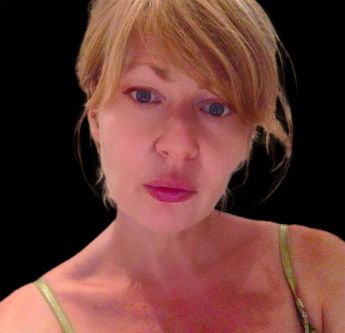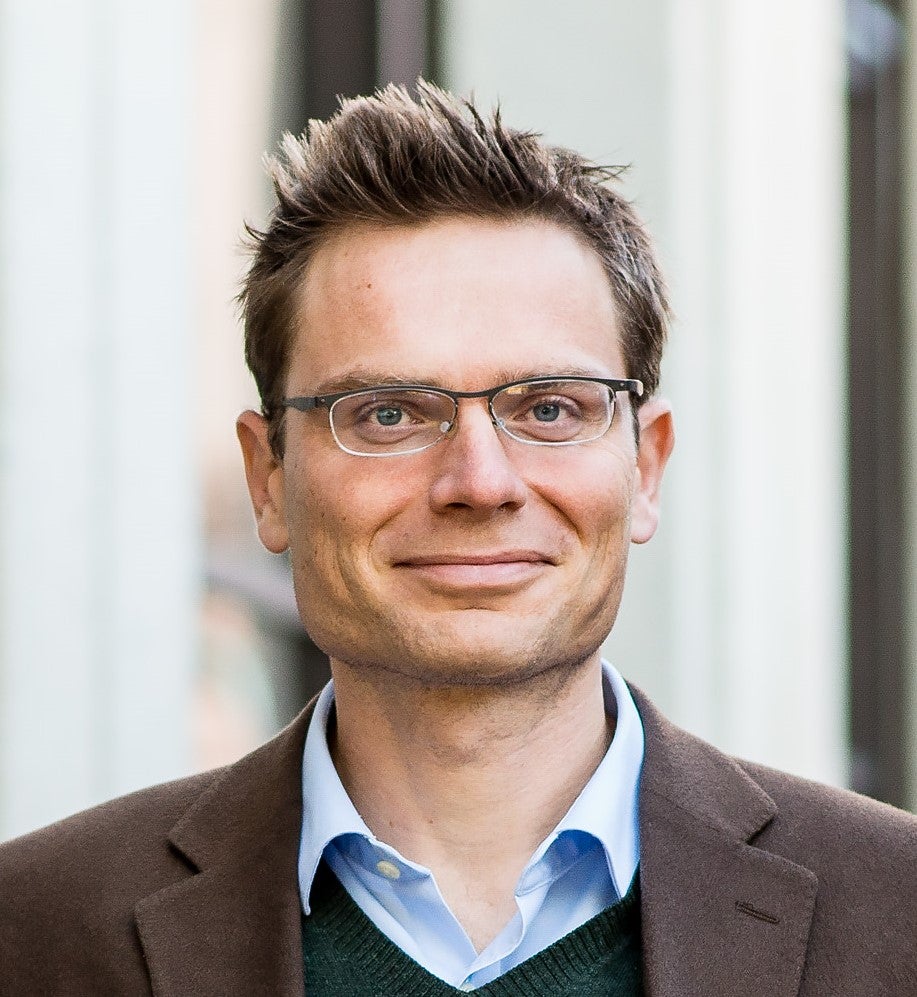Five Stanford University scholars have been awarded 2022 Guggenheim Fellowships. This prestigious honor recognizes mid-career scholars, artists, and scientists who have demonstrated a previous capacity for outstanding work and continue to show exceptional promise.
This year’s fellows from Stanford are Patricia Alessandrini, Nicholas Bloom, Jennifer DeVere Brody, Vera Gribanova, and Fred Turner.
Patricia Alessandrini is an assistant professor of music in the School of Humanities and Sciences, where she is a composer and sound artist, educator, instrument designer, and researcher. She creates compositions, installations, and performance situations, which are for the most part interactive and theatrical. Through these intermedial formats, she actively engages with existing musical repertoires, and issues including representation, interpretation, and memory, often in a social and political context. Her works have been presented in festivals in the Americas, Asia, Australia, and over 15 European countries. She also performs internationally as an improviser of live electronics.
The creative project she will be undertaking with this support is an intermedial opera featuring two coloratura sopranos, Marisol Montalvo and Donatienne Michel-Dansac. As a fellow at the Stanford Humanities Center this academic year, she has been collaborating with author Alexandra Kleeman – also a 2021 Guggenheim Fellowship recipient – on the futurist libretto of this work, in which the two protagonists communicate across an interplanetary setting. The question at the core of this “duodrama” is how present and future technologies – including robotics, which will be used to produce instrumental sound – might be imagined from a cyberfeminist perspective.
She is currently teaching in the areas of composition, sonic arts, computer music, and intermedial arts in the Department of Music and Center for Computer Research in Music and Acoustics, where she performs research on embodied interaction, immersive experience, and instrument design for inclusive performance. From 2022-24, she will be the primary investigator on a project funded by a Stanford Humanities Seed Funding Grant, Considering Disability in Online Cultural Experiences.
Nicholas Bloom, is the William Eberle Professor in the Department of Economics in the School of Humanities and Sciences, and professor, by courtesy, at the Graduate School of Business. He is also the co-director of the Productivity, Innovation, and Entrepreneurship program at the National Bureau of Economic Research, and a fellow of the Centre for Economic Performance and the Stanford Institute for Economic Policy Research.
Bloom’s research focuses on measuring and explaining management practices for manufacturing firms, retailers, schools, and hospitals to develop a quantitative basis for management research. His projects include running management field experiments in India to identify links between management and performance; and the causes and consequences of uncertainty arising from events such as the 9/11 terrorist attack. He also examines factors that can influence innovation and IT, such as tax, trade, and regulation.
Upon learning he’d received the award Bloom said, “it was incredible to receive a Guggenheim fellowship, which fittingly I found out while working from home. The pandemic has led to an explosion of interest into remote work. But many firms and organizations are struggling to figure out how to make this work for them and all their employees. Politicians are also evaluating ways to support and regulate working from home while addressing some of the challenges it presents to the development of big cities.
As a fellow, Bloom plans to continue his research on remote work. “The next few years are hugely exciting in terms of seizing the opportunities that work from home allows, and also addressing the challenges. I hope my Guggenheim research, which focuses on data collection and measurement, can help to guide this process to benefit all of us,” said Bloom.
Jennifer DeVere Brody is a professor in the Department of Theatre and Performance Studies in the School of Humanities and Sciences and works closely with the program in African and African American Studies. Her research and teaching focus includes performance, aesthetics, politics, race, and subjectivity. Her books include Impossible Purities (Duke University Press, 1998) on Black feminist theory and Victorian culture and Punctuation: Art, Politics and Play (Duke University Press, 2008) on Black queer studies and contemporary cultural studies. She co-edited a re-publication of James Baldwin’s illustrated book, Little Man, Little Man (Duke University Press, 2018). After a decade of prioritizing university service as Chair and Director where she worked to expand race studies at Stanford, she looks forward to having more time to focus on her scholarship.
“I am grateful to the Guggenheim Foundation for its long-standing support of artists, academics, and independent researchers. I am excited to join this community that has recognized individuals such as Nella Larsen and Zora Neale Hurston whose work has influenced my scholarship, said Brody. “During the fellowship, I will write about the Afro-Native neo-classical sculptor, Edmonia Lewis (1844-1907), whose image graces the most recent Black Heritage postage stamp.”
Vera Gribanova is an associate professor and director of Graduate Studies in the Department of Linguistics in the School of Humanities and Sciences. “Gribanova studies interactions between syntax (sentence structure) and morphology (word structure). Her work as a linguist focuses primarily on Russian and Slavic languages, but also includes the Turkic languages of Central Asia (primarily Uzbek).
In the Guggenheim award citation, Gribanova explained her research focuses “on the interaction between the principles that dictate how words and sentences are structured with constituent ellipsis, in which a grammatically salient chunk of linguistic content is left unpronounced and is recoverable from the linguistic context. This approach yields mutually reinforcing insights that bear both on the fundamental nature of recoverability and redundancy in linguistic discourse, and on the unifying principles that underpin grammatical structure across the diverse range of human languages.”
She is the recipient of the C.L. Baker Award, awarded by the Linguistic Society of America in 2022.
Fred Turner is the Harry and Norman Chandler Professor in the Department of Communication in the School of Humanities and Sciences. He is also a professor, by courtesy, in the Departments of History and Art & Art History. In 2012, he was appointed the Akiko Yamazaki and Jerry Yang University Fellow in Undergraduate Education in honor of his commitment to undergraduate teaching.
Turner’s research and writing explore media, technology, and American cultural history. His books examine how emerging media have shaped American life since World War II and his essays have tackled topics ranging from the rise of reality crime television to the role of the Burning Man festival in contemporary new media industries.
“I’m thrilled to have received a Guggenheim Fellowship and I’m very grateful to my colleagues, mentors, and students for doing so much to shape my research and writing,” said Turner.
“As a fellow, I’ll be working on a book about media and the politics of difference in 1980s America. Between the end of the Vietnam War in 1975 and rise of the World Wide Web in the early 1990s, Americans witnessed a now-forgotten explosion in new media technologies (think cable TV, the Walkman, the VCR) and a simultaneous turn toward identity-centered politics on both the left and the right. The book aims to explore how these events shaped one another and to argue that when they did, they helped set the stage for the polarized, hyper-individuated world we inhabit today.”
Author
Holly Alyssa MacCormick




